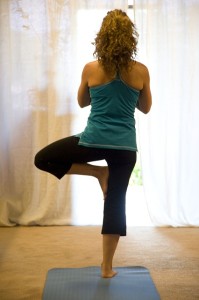- Calls to this hotline are currently being directed to Within Health or Eating Disorder Solutions
- Representatives are standing by 24/7 to help answer your questions
- All calls are confidential and HIPAA compliant
- There is no obligation or cost to call
- Eating Disorder Hope does not receive any commissions or fees dependent upon which provider you select
- Additional treatment providers are located on our directory or samhsa.gov
Lifestyle Changes: More than Diet and Exercise
Contributor: Lee Kern, MSW, LCSW, is the Clinical Director at Structure House, an internationally recognized, psychologically based residential weight control center in Durham, NC.

As a weight loss professional and psychotherapist, I will offer some perspective on the underlying substance suggested by this common concept.
Yo-Yo Dieting
Mindset re-set. Many weight losers assume that by following a rigid plan of dietary rules (the Rice Diet, the Grapefruit Diet, The South Beach Diet) the unwanted weight will be lost and the problem is solved. They can then switch off the diet and return to their baseline eating habits.
Unfortunately, given enough time at baseline, the lost weight is regained, and the yo-yo pattern repeats itself.
Focusing on a “Lifestyle Change”
Dynamic, sophisticated approaches to weight control attempt to target this on/off, all/none, “diet mentality” through counter messaging: it’s not a diet, it’s a lifestyle change. Such successful re-framing occurs by shifting the focus from weight to the relationship with food.
The goal is to create a lifestyle in which the role of food is for health and nutrition. Thus, through “lifestyle change,“ temporary dieting is replaced with a more enduring notion of healthful life-long eating, and weight is stabilized in an optimum zone.
Stress in Life Taking Over Healthy Eating
Imbalance. Joe works in a busy law firm with long hours that sometimes involve weekends. He also oversees the care of his elderly mother, and has a dysfunctional adult daughter whose occasional crises demand his time and attention.
After eating large take/out dinners he grazes through the evening on sweets, which he considers his reward and soothing. At 260 pounds he is 70 pounds overweight and has high blood pressure and pre-diabetes.
It is easy to see how Joe’s lack of balance in his lifestyle (overwork, caretaking, absence of leisure and self- nurturing) set him up to eat mindlessly and to use food for comfort and pleasure. Joe needs a lifestyle makeover, which would include an improved diet and exercise, but potentially so much more.
Overdoing and Under-doing

(Under- doer)1…2…3…4…5…6…7(Over-doer)
The goal is to strike a balance between the poles and to have some diversity- actualization of activities that touch all areas. Below are some considerations for broader lifestyle change.
Work. Janet is a highly trained EMT who volunteers to work 3 shifts a week on a team that gathers at a fire station.
Whether it is to earn money, is a hobby or an avocation, we prosper from engagement in work-like activities that meet essential needs:
- Purpose
- Meaning
- Responsibility
- Community
- Time structure
- Challenge
- Skill
- Productivity
- Mastery
Too much work could lead to eating for escape or decompression. Not enough might result in food being used to stimulate, relieve boredom, or fill in time.
Relationships and Support
Relationships/support. Human beings are created to be interdependent. Many of our essential needs, sometimes called “dependency needs” are provided through our attachments to others: love, attention, emotional validation, approval, touch, encouragement.
Not surprisingly, those that get support for their weight control (coaching, therapy) are more likely to enjoy lasting success. Insufficient interpersonal support can lead to the use of food for love. Over-doing in relationships, such as constant caretaking, frequent food based socialization, or lack of self-time can de-stabilize weight control.
Taking Care of Yourself
Self-care. Similar to a car, the healthy self requires maintenance in order to be at optimum performance.
Physical self-care includes:
- Exercise (cardio, strength, flexibility)
- Adequate sleep
- Relaxation
- Diet
- Grooming
- Medical check-ups
Mental/spiritual self-care includes:
- Intellectual stimulation
- Meditation
- Time to think and plan
- Affirming self-talk
Replacing the Eating Disorder with Healthy Habits Again
Gail’s binges escalated in direct proportion to her negligence of self-nurturing. After activating a regimen of healthy pleasures (inspirational reading, manicures/pedicures, symphony concerts) the bingeing faded away. Over- doing may lead to perfectionism, under-doing sets up using food for nurturing.
Leisure. Leisure activities can be expressed in six primary areas:
- Social interaction (club meetings)
- Creative expression (handicrafts)
- Physical activity (hiking)
- Spectator appreciation (concerts)
- Intellectual stimulation (lectures)
- Solitary relaxation (meditation)
Leisure can provide fun, challenge, stress reduction, meaning, healthy pleasure. Lack of leisure may set up use of food for fun or pleasure. A life of too much leisure may lack a sense of purpose and productivity.
Finding Productivity and Enrichment in Life

The state of engagement in a skill based, challenging activity is called “flow.” Lack of flow can lead to personal low points (“psychic entropy”) which we try to escape through passive pleasures like TV watching and eating.
Finding Healthy Wants and Rewards
Want/should. Sometimes I suggest clients do a time analysis: list all the activities of a typical day, how much time is spent in each, and rate each on a 1 through 7 continuum from “want” to “should”.
The lack of healthy wants, when days are spent in excessive amounts of duty, obligation and responsibility, is likely to set up eating for reward, escape or comfort.
The dimensions listed above (work, support, self-care, leisure, flow) offer possibilities for including healthy wants into our lifestyles, thus making it easier to let go of emotionally charged attachments to food.
A Good Example
Robert’s progress is a good example. He lost from 307 to 197 in three years. His lifestyle changes included: meditation, relaxation tapes, yoga, tennis, golf, eating at a table with the TV off, jogging, and starting a new business to help other businessmen lose weight.
It is up to each person to determine whether your lifestyle needs a tune-up or an engine overhaul. The goal is to stretch beyond diet and exercise, and through lifestyle change to build a diverse foundation upon which lasting weight control can be built.
References:
- Csikszentmihalyi, Mihaly, Flow- the Psychology of Optimal Experience, 1991.
Biography:
Lee Kern, MSW, LCSW, is the Clinical Director at Structure House, an internationally recognized, psychologically based residential weight control center in Durham, NC. He supervises a team of therapists and contributes to the development of the clinical program, providing psychotherapy and psycho-educational workshops.
He received a Masters of Social Work from the University of North Carolina and serves as an Adjunct Instructor for the UNC-CH School of Social Work. He was a regular contributing author to WLS Lifestyles Magazine, and has conducted studies and authored publications on successful weight management.
In 2011 his articles were published in a collection called LOSING LESSONS. In addition to working with weight and eating issues his professional interests include psychodynamic therapy, stress management, relapse prevention, lifestyle change, motivation, life goals and addiction.
Community Discussion – Share your thoughts here!
What is your experience with stretching a lifestyle change beyond diet and exercise?
The opinions and views of our guest contributors are shared to provide a broad perspective of eating disorders. These are not necessarily the views of Eating Disorder Hope, but an effort to offer discussion of various issues by different concerned individuals.
Last Updated & Reviewed By: Jacquelyn Ekern, MS, LPC on December 18th, 2014
Published on EatingDisorderHope.com
